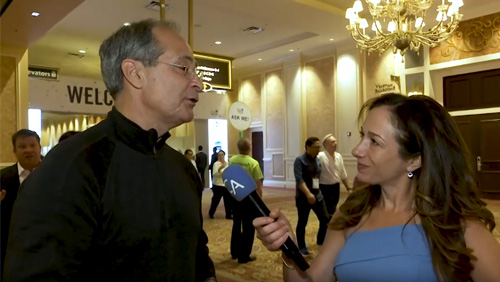Innovating the gambling space isn’t just about finding the next edge to attract new gamblers; it’s about bridging the gap from the last generation of player to the next. Understanding how to best do that can be helped a bit by taking an academic view of the shift. To do just that, our Rebecca Liggero Fontana spoke with Robert Rippee, Director of the Hospitality Lab at the International Gaming Institute of the University of Nevada, Las Vegas.
Before even starting to work on the thing that appeals to today’s youth, it’s important to understand what makes them difference. “First step is to understand that those two generations are very different, so what works for one may not work for the other, which is in theory why they need to market to the younger generation,” he said. “So the experiences that they designed and built that appeals to my generation doesn’t necessarily appeal to yours. So the way that you get around that is first of all, you have to kind of take a risk. You have to take a risk in figuring out what do I want? Or what does a younger generation want? Then there’s a second part that says if you do it right, you have examples of things like technology that have been designed and introduced to younger generations that made their way, and are accepted and used by other generations.”
Thankfully, a whole new wave of technology could help attract the millennial and Gen-Z generations. “In fact, I would say the clues to us are in things like virtual reality and augmented reality,” he began. “And in machine learning, artificial intelligence, I think if I were to predict a world for now, so in 20 year from now, you have to assume that things like integrated circuits are everywhere, right? They’re in the wall, they’re in the floor, they’re in your microphone. And the amount of data that’s flowing through is so massive that it takes machine learning to process. What that means is that there are new opportunities for smart machines. So some of the burden that we take in our own brains is offloaded to machines and we spend more time on creative things like virtual reality being in different worlds, or augmented reality, of changing the world we currently live in.”
But while so many stereotypes have been created about millennials, Rippee noted that this is a huge mistake. “First step is to study the generations, not make assumptions, and certainly not study it as a baby boomer studying a millennial,” he said. “I need insight from them, I need to see the world through the lens of their eye, and you do that by interacting with it, by researching, by looking at things that are powerful and popular with them and then understanding why. Why is our music festival so powerful with young people? What is the attraction of it? What do they get out of it in terms of hedonic benefits, or economic benefits that appeals to them that keep them coming back over and over again. Or the paradigm of esports; why is this such a big phenomenon?”
That doesn’t mean everyone is getting it wrong. In fact, Rippee had some examples in mind of game developers who are getting it right. “I think there are companies on the trade show floor here like GameCo who’ve really kind of taken that step into that space of crossing the line between the traditional machine based game and a game that requires some skilled input, or skill affects the outcome of the game,” he said. “I think that’s a great learning tool, it’s a great step to understand is that the type of gameplay that casino operators are going to find effective and economically feasible for them in the future.
Liggero Fontana concluded by asking Rippee about the worrying trend of underage gambling, and the research that’s being done on the topic. “I like to think that some of the work that one of my colleagues, Dr. Brett Abarbanel does, in researching problem gaming, and gaming, and particularly as it relates to video gaming and esports,” he said. “And I think there are multi levels to the answer. First of all, to your first question, if there is an entity that’s engaged in trying to get people addicted to gambling, then they should be put out of business. That’s a really bad idea, and it’s bad social, poor social responsibility.”
Thankfully, a large portion of the gambling industry keeps a close eye on their responsibilities. “However, every organization, and casino companies I think, particularly in the U.S., are really good at understanding responsible gaming, putting policies in place to prevent underage gambling,” he said. “To identify people who may have a pathology towards improper levels of play and really help them with it, or at least provide resources, and it’s no different than with younger generations, right? It’s great to be thinking about ways to create new skill based type games that would be in a casino, but those are for people 21 and older. And so you put policies in place to ensure that the only people playing those games are 21 and older. Now, that doesn’t mean in our world today, where information is never more than a click away, that a 14-year old isn’t going to find out about them. They’re going to, but the reality is you have policies and process in place to prevent them from accessing something that they shouldn’t.”






